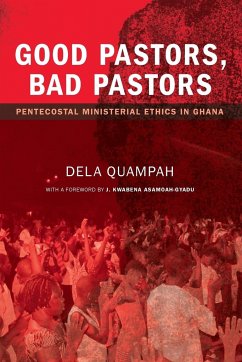The emergence of Pentecostalism in Ghana has attracted a massive following and generated institutions that have significantly impacted Christian discourse and national life. The movement has produced prominent leaders who have developed exemplary Christian education programs and generated volumes of Christian literature unprecedented in Ghanaian Christianity. Nevertheless, public opinion often upbraids church leaders for unethical conduct. Despite the concern for high moral standards set by Pentecostal church polity and ministerial ethical codes, reports of Pentecostal ministerial misconduct appear regularly in the media. Although congregation members and perceptive public observers appreciate the constructive moral impact of Pentecostal ministers, instances of promiscuity, power abuse, financial misappropriation, and superstition reveal a gap between ethical ideals and practice. As this research reveals, factors behind unethical ministerial conduct include inadequate training, poor accountability, and a general low level of ethical reflection. Good Pastors, Bad Pastors suggests that a multidimensional approach of responsible reportage, emphatic moral education, appropriate but sympathetic response to moral failure, and peer-review accountability could help uphold a higher standard of ministerial ethics.
Hinweis: Dieser Artikel kann nur an eine deutsche Lieferadresse ausgeliefert werden.
Hinweis: Dieser Artikel kann nur an eine deutsche Lieferadresse ausgeliefert werden.








